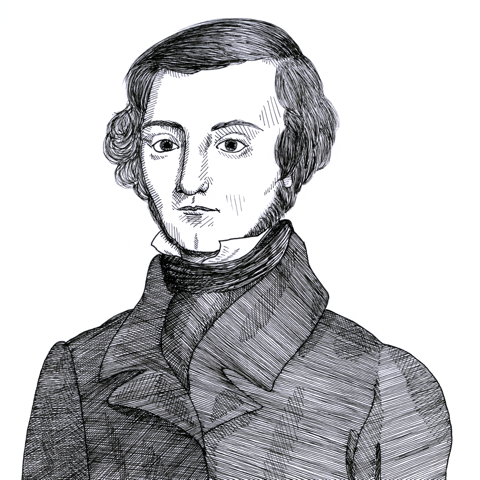Liberty Matters
Was Tocqueville Right about Decentralization?

Upon rereading the three responses, I realized again that when interpreting Tocqueville’s writings, it is essential to remember that he lived in an age of transition and belonged to a generation whose main mission was to bring the French Revolution to a peaceful end. It was also an age when firm beliefs were dissolved to make way for a universal and relentless questioning of all dogmas, principles, and authorities. In this regard, we may seem to live in a similar age, and this should bring Tocqueville even closer to us.
I would like to also confess that my interest in Tocqueville has never been purely academic. I first read him while studying in France in the aftermath of the fall of communism in Eastern Europe and have been rereading him ever since in light of that first encounter. More than any other political thinker, Tocqueville seemed to be my contemporary because he asked the very question that preoccupied me at that time as Eastern Europe was making the transition to an open society. (Has it ended, I wonder?) The question was how to bring the revolution(s) of 1989 to a peaceful end by constitutionalizing the liberties gained in that annus mirabilis which saw the fall of the Berlin Wall.
If communism challenged the imagination and conceptual resources of academics and politicians alike, the same can be said about postcommunism. The debates over the true meanings of the 1989 revolution, the legacy of communism, and its impact on subsequent transitions to democracy show that political scientists have put forward different theories of democratization that attempted to make sense of the new political and social scene in Eastern Europe (and Russia). In what ways can Tocqueville’s new science of politics help us analyze and understand better the new political landscape in that region?
For the sake of debate, I would like to take up an issue that looms large in Democracy in America: decentralization. Tocqueville ascribed the vigor of the American democracy to both self-government and administrative decentralization. In The Old Regime and the Revolution he presented centralization as one of the most disturbing vices of nondemocratic regimes and suggested that decentralization should be seen as an essential precondition of democratic regimes. How does this square with the post-1989 situation in Eastern Europe?
The aftermath of communism witnessed in the region a swift economic and partial administrative decentralization that led to a paradoxical outcome: the rise of local (and often mafia-like) elites exerting territorial and logistical control in their respective regions. This made possible the appearance of local powerful barons that were extremely deft at appropriating national and European funds, which they channeled more into their private business than into public projects. In retrospect it is obvious that this decentralization, although good in principle, had perverse consequences and was not the type of thing Tocqueville would have liked or endorsed. This perverse form of decentralization did not contribute to a better form of self-government but to the consolidation of perverse local institutions and entrenched local economic and political elites.
And yet, as a good friend of mine and an expert on the region, Venelin Ganev (Miami University of Ohio), once noted in our private exchanges on this topic, “Democracy did in fact take root, despite the ‘bad’ decentralization.” All this should lead us to conclude that Tocqueville’s celebration of decentralization might have gone too far or might be in need of nuances. Is that right?
Copyright and Fair Use Statement
“Liberty Matters” is the copyright of Liberty Fund, Inc. This material is put on line to further the educational goals of Liberty Fund, Inc. These essays and responses may be quoted and otherwise used under “fair use” provisions for educational and academic purposes. To reprint these essays in course booklets requires the prior permission of Liberty Fund, Inc. Please contact oll@libertyfund.org if you have any questions.